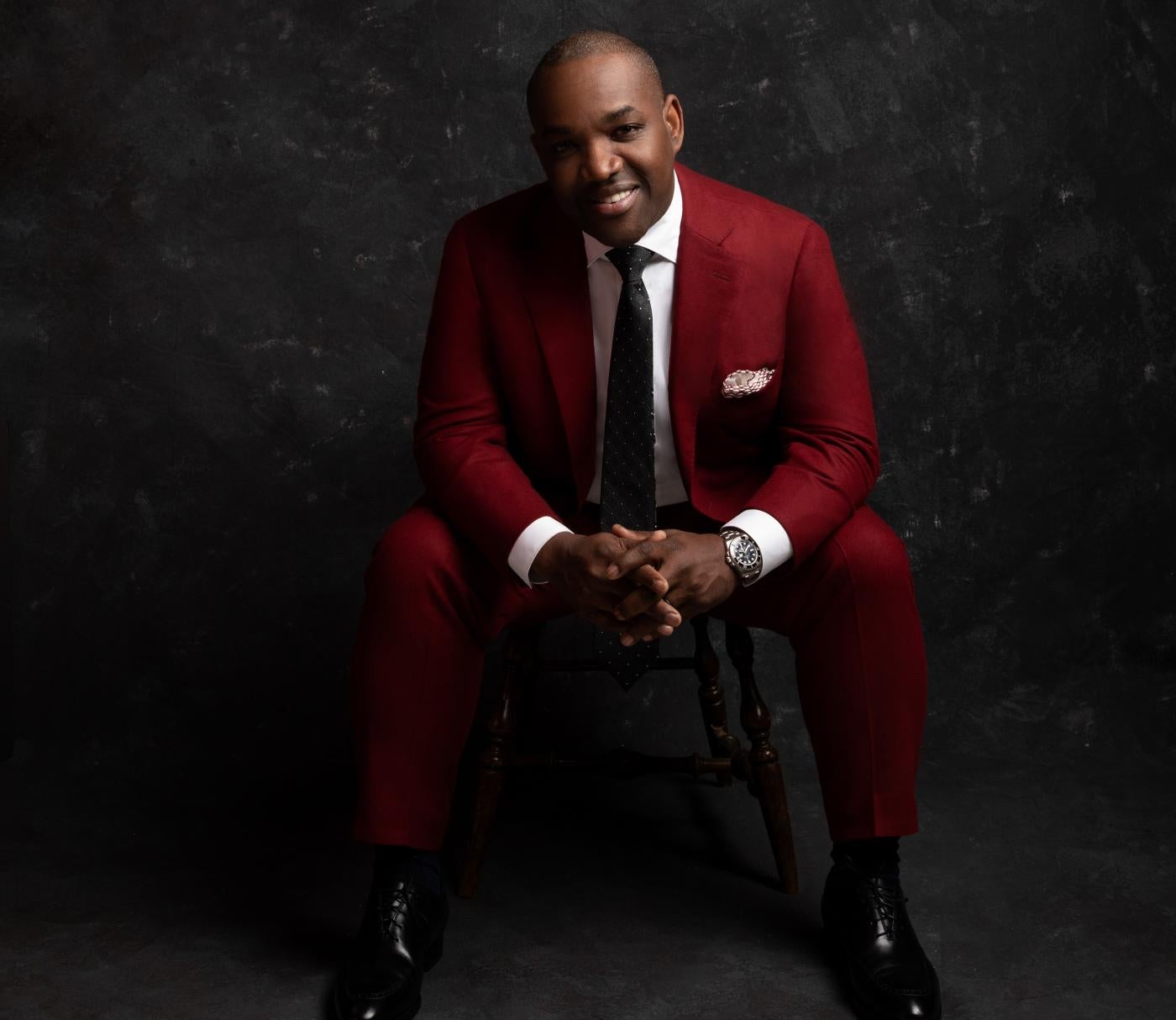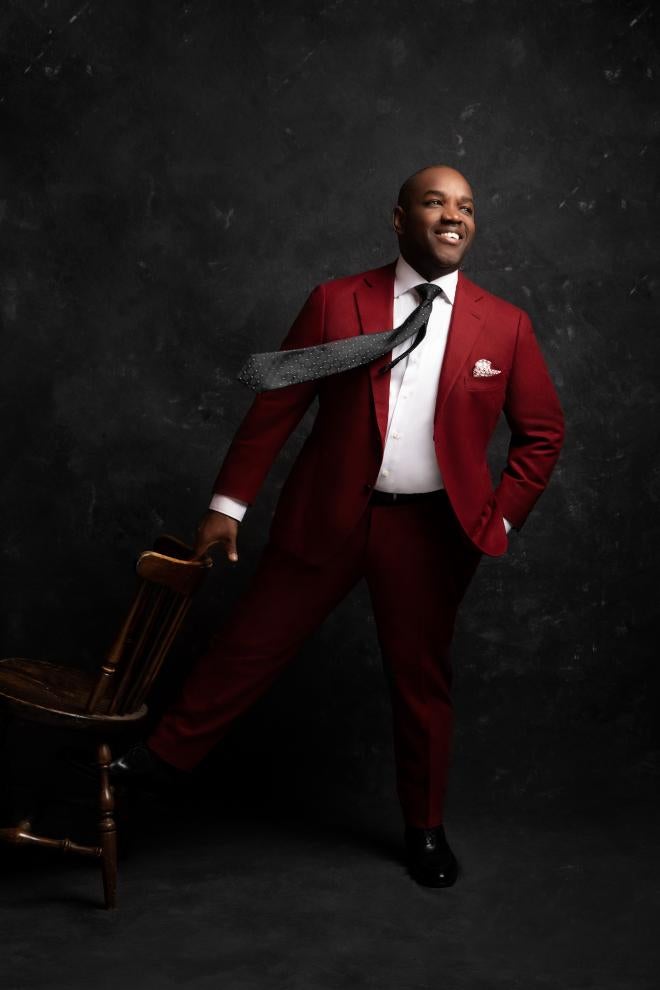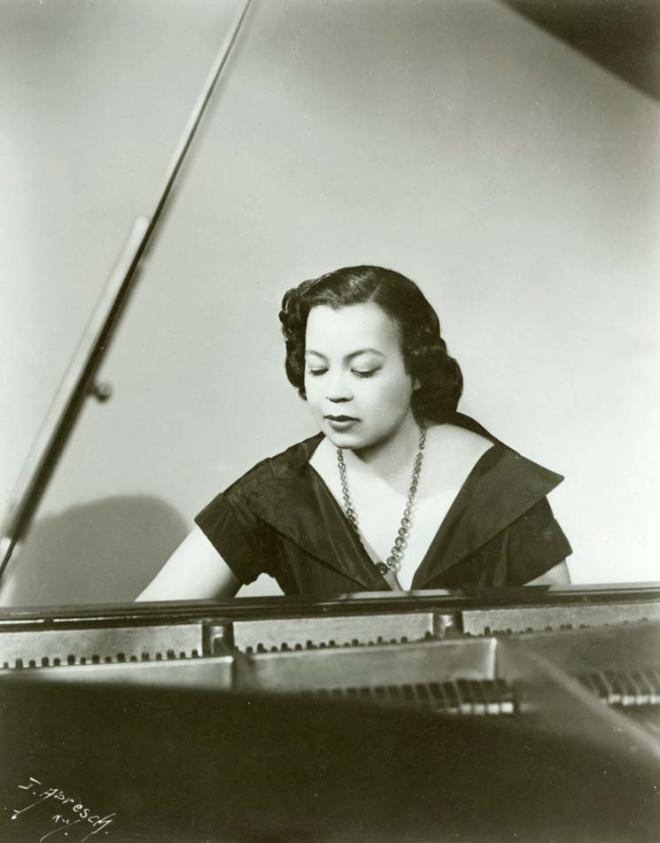One of our country's star tenors, Lawrence Brownlee, returns to the Kennedy Center’s Terrace Theater with pianist Kevin J. Miller this Sunday afternoon, on tour with his commissioning project, Rising. Through this project, six of today’s leading African-American composers were commissioned to set poetry from the Harlem Renaissance to song. The composers on Brownlee’s Sunday concert include Robert Owens, Jeremiah Evans, Damien Sneed, Brandon Spencer, Jasmine Barnes, Joel Thompson, and Shawn E. Okpebholo.
As music lovers we have a lot in common with other mediums, like poetry, that convey our emotions and experiences in ways others fall short. I asked Brownlee more about this project and what we can look forward to at Sunday’s concert.
John Banther: As a country I think some of our best (and most direct) poetry comes from the Harlem Renaissance. Did you have any guidelines or ideas when you were selecting poems to be set to song for Rising?
Lawrence Brownlee: The great writers of the Harlem Renaissance were able to express our plight in words. Rising is a project that came out of my desire to be a vessel for composers and the works of these wonderful laureate writers and personalities that have contributed so much to our present culture.
When selecting texts, my team and I wanted to give the composers the opportunity to look at things that resonated with them. Rather than pre-assigning texts to each of them, we wanted them to feel like they could give voice to text that they especially thought was meaningful.
JB: Did you run into any unexpected challenges with this project?
LB: I did actually. I was not in the best of voice for much of the recording and had to reschedule a day of recording. Sometimes the vocal fatigue that can happen as a result of this career will cause you to reschedule performances and not allow you to have the full range of your abilities. I did the best I could and tried to convey emotion and text and be even more intentional in my expressivity!
JB: Still in the earlier part of the 20th century, poetry from the Harlem Renaissance is naturally quite varied in rhythm and form. Can we expect to hear a variety of musical styles as well?
LB: The program has a very rich palette, consisting of works by composers influenced by gospel, jazz, pop, Stravinsky even — I hope the many different styles of composers starting to form their own signature sound will introduce some audience members to a whole new world.
JB: Is there a song in this project that proved to be more challenging than expected?
LB: All of the composers know that my voice sits higher than the average tenor perhaps, and they all composed specifically for my voice. That being said, I really need to lean on my technique to navigate moments of high tessitura in a few of the pieces like “Peace”, “Romance” and “The Gift to Sing”.
JB: Do you see any parallels with the Harlem Renaissance looking to “days ahead” and today coming out of the pandemic?
LB: I personally have a hopefulness looking towards getting back to a better version of the world than we had before the pandemic. So much of the pandemic was spent with much uncertainty and unknowing, but I personally want to look to the future -making long term plans for more interesting, meaningful projects and being a better musician and human being.
JB: You also worked with Dr. Toppin (soprano) to revive select works from Margaret Bonds and Robert Owen. Are these songs that were historically neglected, initially lost, unpublished, something else? Did anything else factor into that process?
LB: Dr. Louise Toppin was a great resource for me in this project. She provided a great deal of knowledge about how little both Owen and Bonds have been recorded. As I recall, The Bonds pieces had never been recorded by a male voice before, so it is great to be a part of introducing them to male voices. There is nothing in the text that is gender specific for the Bonds either, so it works. The Bonds and Owens pieces are among my favorite songs on the album.
JB: What do you hope audiences come away with after listening?
LB: My sincere hope is that the audience members will be moved and inspired by these fabulous young African-American composers, but also the works of the great African-American poets of the Harlem Renaissance. It's through what they hear happening in the music — from Romeo and Juliet to what a man learns in his coming of age — that I want audiences to discover more of the rich history of our people that they have maybe never heard and to leave wanting to know more.
JB: You’ve mentioned that themes of uplift, elevation, and rebirth were a focus in this project. In what ways can we hear this in the music?
LB: Struggle and hardship has encapsulated much of Black poetry, but we're starting to see that writers, now, are talking about peace, love, things we all want in life. Rather than limiting this music to African American pain and difficulty, I focused on the conversation being about celebrating the beauty of Black life.
As we as a community have risen in society, as we have risen in importance, these young composers were able to take works that are part of the foundation of some of the progress we’ve had and they tell not just the stories of these great writers, but the composers' own stories, lives, and experiences as well, through these pieces of music.
Hear Lawrence Brownlee speak about equality in classical music
PBS PASSPORT
Stream tens of thousands of hours of your PBS and local favorites with WETA+ and PBS Passport whenever and wherever you want. Catch up on a single episode or binge-watch full seasons before they air on TV.


